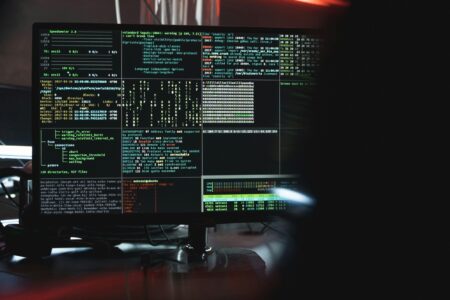The U.S. Department of Education (DOE) and the National Counterintelligence and Security Center (NCSC) issued new guidance on Aug. 25 to warn colleges and universities about growing foreign threats to research.
The Safeguarding Academia bulletin outlines emerging risks, such as espionage, cyber intrusions and foreign talent recruitment programs, and offers strategies for institutions and researchers to reduce those risks and report suspicious actions.
The NCSC, which jointly issued this guidance, is a part of the Office of the Director of National Intelligence. It was established in November 2014 when several offices were combined to strengthen how counterintelligence and security are handled across government agencies, industry and academia.
Federal officials noted that foreign adversaries have taken advantage of the openness of U.S. research universities to steal technology and recruit skilled individuals. The goal of the new guidance is to help institutions maintain innovation and competitiveness while protecting research and personnel. It involves agencies including the National Science Foundation, the National Institute of Standards and Technology, the FBI and military counterintelligence services. Since January 2025, the DOE has launched investigations into several major universities over inaccurate foreign funding disclosures.
The guidance states that foreign actors use theft, plagiarism, cyber intrusions, talent recruitment and manipulation of research collaborations to acquire U.S. research outputs. They target materials like unpublished data, lab protocols, technical expertise, grant information, prototypes and personal data of students and faculty. It identifies China as the most aggressive actor, targeting emerging technologies including artificial intelligence, quantum technologies, semiconductors, hypersonics and biotechnology. The bulletin also warns institutions to be watchful for operatives posing as students from nations including China, Cuba and Russia.
The guidance emphasizes that loss of intellectual property and credibility can carry legal and financial consequences and undermine U.S. competitiveness. It describes how seemingly casual conversations can yield sensitive information and how cyber threats like phishing, malware and fake recruitment schemes can cause serious data loss or even direct threats to campus personnel.
To mitigate risk the guidance advises integrating security into existing training, being transparent about foreign funding and affiliations and, when traveling or working abroad, protecting data, practicing good cyber hygiene, limiting shared information and respecting local laws. Researchers are urged to act as the first line of defense and report anything suspicious to appropriate security offices.
While academic institutions are known for collaboration, NCSC emphasizes the need to balance openness with vigilance. Protecting taxpayer-funded research from foreign exploitation is essential for sustaining innovation, economic competitiveness and national security.
Photo by Pixabay













